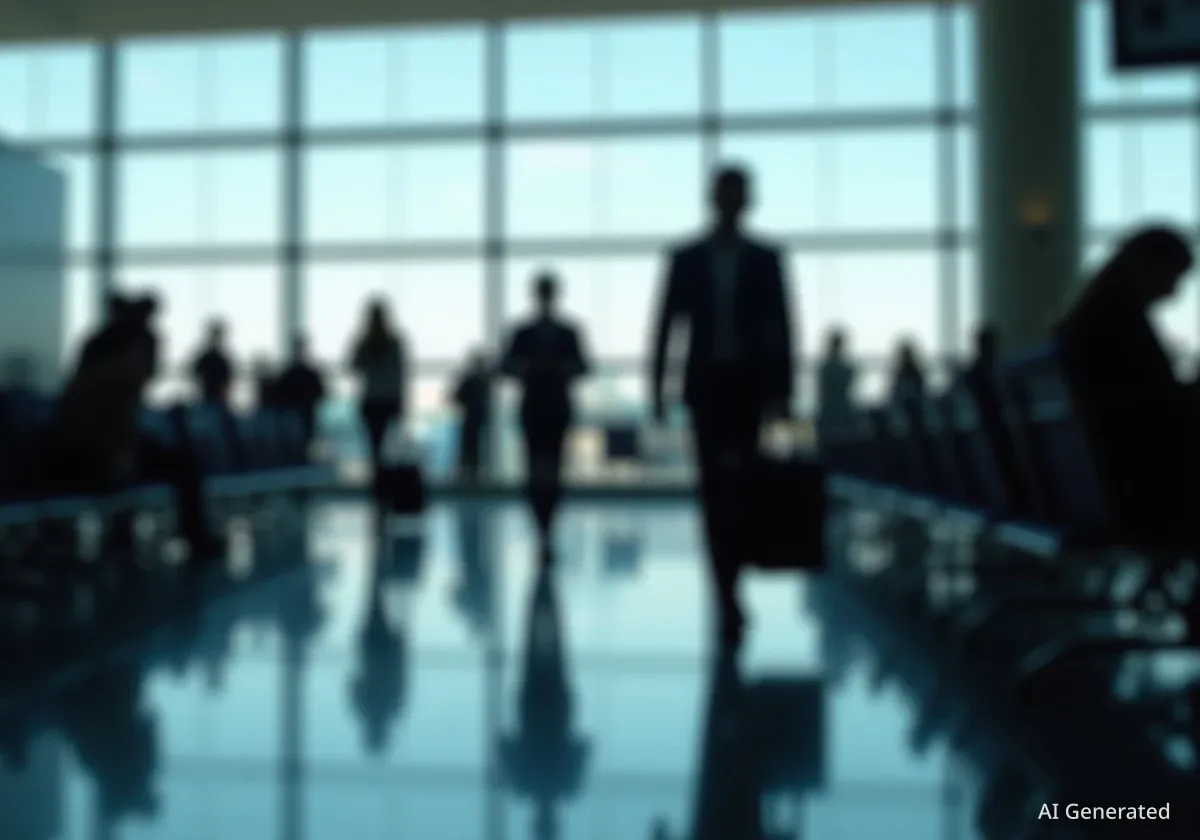An American Airlines flight bound for Jamaica was forced to return to Charlotte Douglas International Airport (CLT) on Friday afternoon. This diversion occurred after two passengers reportedly refused to comply with flight attendant instructions while the aircraft was airborne. The incident led to a four-hour delay for all passengers.
Key Takeaways
- American Airlines flight 893 returned to Charlotte after departure.
- Two passengers were removed for not following crew instructions.
- The flight was delayed by approximately four hours.
- American Airlines emphasized safety and compliance with federal regulations.
Flight Diverted After Departure
The incident involved American Airlines flight 893, which had departed Charlotte on Friday afternoon. Its destination was Jamaica. Shortly after takeoff, issues arose with two individuals on board.
According to reports, these passengers did not follow repeated instructions from flight attendants. Such non-compliance can create safety concerns within the aircraft environment. Airlines prioritize the safety of all passengers and crew.
Fact: Air Travel Incidents
The Federal Aviation Administration (FAA) reported 2,455 unruly passenger incidents in 2021. This number was significantly higher than previous years. In 2022, the number decreased to 2,333. By 2023, it dropped further to 1,980. These figures highlight the ongoing challenge airlines face with passenger behavior.
Passengers Removed from Aircraft
Due to the ongoing disruption, the flight crew made the decision to turn the plane around. The aircraft returned to Charlotte Douglas International Airport. Upon landing, airport authorities and airline personnel met the plane.
The two disruptive passengers were then removed from the flight. This action allowed the remaining passengers to continue their journey once the situation was resolved. Decisions to divert flights are made to ensure the safety and comfort of everyone else on board.
“Safety is our top priority, and we expect our customers to comply with federal regulations while on board our aircraft. We thank our team members for their professionalism and our customers for their understanding.”
— American Airlines statement
Impact on Travel Plans
The unexpected return to Charlotte resulted in a notable delay for all passengers on flight 893. The aircraft eventually departed for Jamaica again, but it arrived at its destination approximately four hours later than scheduled.
Flight delays can impact connecting flights, ground transportation, and pre-booked activities for travelers. Airlines often work to mitigate these impacts, but diversions for safety reasons are considered paramount.
Context: Unruly Passenger Trends
The rise in unruly passenger incidents prompted the FAA to implement a zero-tolerance policy in early 2021. This policy means that passengers who engage in disruptive behavior may face legal penalties, including fines and imprisonment, rather than just warnings. This stricter approach aims to deter future incidents and maintain order on flights.
Airline Response and Regulations
American Airlines released a statement following the incident. The airline reiterated its commitment to safety. It also emphasized the expectation for all customers to follow federal regulations while on board its aircraft. This includes directives from flight attendants.
Federal regulations, specifically those enforced by the FAA, govern passenger conduct on commercial flights. These rules cover a range of behaviors, from obeying crew member instructions to refraining from disruptive actions. Non-compliance can lead to serious consequences for individuals.
- FAA Regulations: Federal Aviation Regulations (FARs) mandate that passengers must comply with flight crew instructions.
- Crew Authority: Flight attendants are trained to manage cabin safety and enforce rules. Their instructions are legally binding.
- Potential Penalties: Unruly passengers can face civil penalties up to $37,000 per violation from the FAA. Criminal charges are also possible.
The professionalism of airline crew members is crucial in handling such situations. Their training includes de-escalation techniques and procedures for ensuring passenger safety during disruptions. The prompt action taken by the American Airlines crew in this instance aligned with standard safety protocols.
Passengers are reminded that air travel involves adherence to specific rules designed for collective safety. Disruptive behavior, regardless of its nature, can have significant repercussions for the individuals involved and for the travel plans of hundreds of other passengers.





